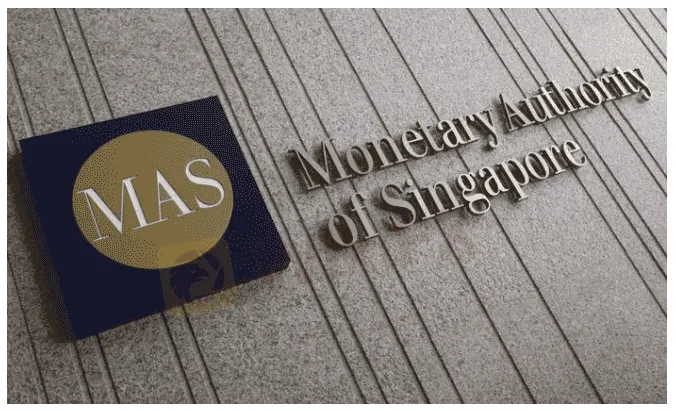简体中文
繁體中文
English
Pусский
日本語
ภาษาไทย
Tiếng Việt
Bahasa Indonesia
Español
हिन्दी
Filippiiniläinen
Français
Deutsch
Português
Türkçe
한국어
العربية
Singapore expected to tighten monetary policy – but by how much?
Abstract:Singapore‘s central bank is likely to tighten its policy settings at its review this month, the third time in a row, as inflationary pressures intensify due to global supply-side disruptions and an easing of the city-state’s border controls.

All 15 economists polled by Reuters forecast the Monetary Authority of Singapore to tighten its policy, but they are divided on how aggressive the central bank is likely to be and which of its various settings it will change.
Instead of interest rates, the MAS manages policy by letting the local dollar rise or fall against the currencies of its main trading partners within an undisclosed band, known as the Nominal Effective Exchange Rate.
It adjusts its policy via three levers: the slope, mid-point and width of the policy band.
Of the economists polled, three expect the MAS to only raise the slope of the band, while another five expect the MAS to raise the slope of the band along with an upward re-centering of its mid-point.
“Downside growth risks due to current geopolitical tensions are manageable, in our view,” ANZ economist Khoon Goh said in a research note. “Tightening resource pressures in the economy and upside inflation risks mean the MAS has to be more forceful in normalising monetary policy.”
Adjusting the mid-point is typically seen as a more “aggressive” tool than only adjusting the slope, while width is usually used to control how much the Singapore dollar can fluctuate.
Five forecast the MAS re-centering the mid-point higher, with no change to the width or the slop.
Morgan Stanley expects the slope to be steepened alongside a widening of the band — a move last made in 2010, while Barclays is predicting a change to all three parameters.
“With the heightened uncertainty from geopolitics, the upside risk to inflation, and the downside risk to growth, we now think that MAS could undertake both a slope steepening and a band widening,” Morgan Stanley analysts said.
While Bank of America only expects the slope to be adjusted, it said re-centreing is a “close call” and will “likely be calibrated”, while not ruling out a band widening as well.
The central bank is expected to release its next semi-annual monetary policy statement no later than April 14.
The MAS tightened monetary policy in January this year in an out-of-cycle move, which followed a tightening in October.
February headline prices rose at their fastest pace in nine years due to higher private transport costs, while core prices eased for the first time since June last year.
The MAS is expecting core inflation to come in within 2–3% this year, up from 0.9% last year, while headline inflation is projected to average between 2.5% and 3.5%.
The government had projected gross domestic product to expand 3-5% in 2022 in a forecast provided before Russias invasion of Ukraine.
Singapore‘s finance minister Lawrence Wong said in March the city-state’s economy should continue to expand this year but that authorities were ready to deploy more fiscal and monetary policy measures if a worsening Russia-Ukraine crisis impacted growth and inflation.
Last month, Singapore made its biggest reopening moves from the COVID-19 pandemic, easing local restrictions and allowing vaccinated travellers from anywhere in the world to enter without having to quarantine.

Disclaimer:
The views in this article only represent the author's personal views, and do not constitute investment advice on this platform. This platform does not guarantee the accuracy, completeness and timeliness of the information in the article, and will not be liable for any loss caused by the use of or reliance on the information in the article.
Read more

Account Deleted, Funds Gone: A New Broker Tactic to Beware Of?
The main trading dashboard account of a trader for LQH Markets was completely deleted by a broker. The trader is not being offered any access to their funds or profits. This incident shows the risks of trading markets and brokers and the importance of protecting your funds without relying on any broker.

CySEC reaches €20k settlement with ZFN EUROPE
According to report, the Cyprus Securities and Exchange Commission (CySEC) announced today that it has entered into a settlement agreement with ZFN EUROPE Ltd for the amount of €20,000. This settlement resolves a regulatory inquiry into ZFN Europe’s compliance with Cyprus’s Investment Services and Activities and Regulated Markets Law of 2017, as amended.

PrimeXBT Expands Trading Options with Stock CFDs on MT5
PrimeXBT launches stock CFDs on MetaTrader 5, offering shares of major U.S. companies with crypto or USD margin for enhanced multi-asset trading.

Broker Comparsion: FXTM vs AvaTrade
FXTM and AvaTrade are two well-established online brokers offering forex and CFD trading across global markets. Both enjoy strong reputations and high ratings on WikiFX—FXTM holds an AAA overall rating, while AvaTrade scores 9.49/10, indicating they’re regarded as reliable choices by the community. However, since brokers have great reputation in the industry, how do we know which one is more suitable for individuals to invest in? Today's article is about the comparison between FXTM and AvaTrade.
WikiFX Broker
Latest News
Love, Investment & Lies: Online Date Turned into a RM103,000 Scam
Broker Took 10% of User's Profits – New Way to Swindle You? Beware!
Pi Network: Scam Allegations Spark Heated Debate
Broker Comparsion: FXTM vs AvaTrade
Account Deleted, Funds Gone: A New Broker Tactic to Beware Of?
Broker’s Promise Turns to Loss – Funds Disappear, No Compensation!
El Salvador and U.S. Launch Cross-Border Crypto Regulatory Sandbox
The Instagram Promise That Stole RM33,000
StoneX Subsidiary, Gain Global Markets Bermuda, Penalized for Trading Misconduct
Kraken Partners with Alpaca to Offer U.S. Stocks and Crypto
Currency Calculator


